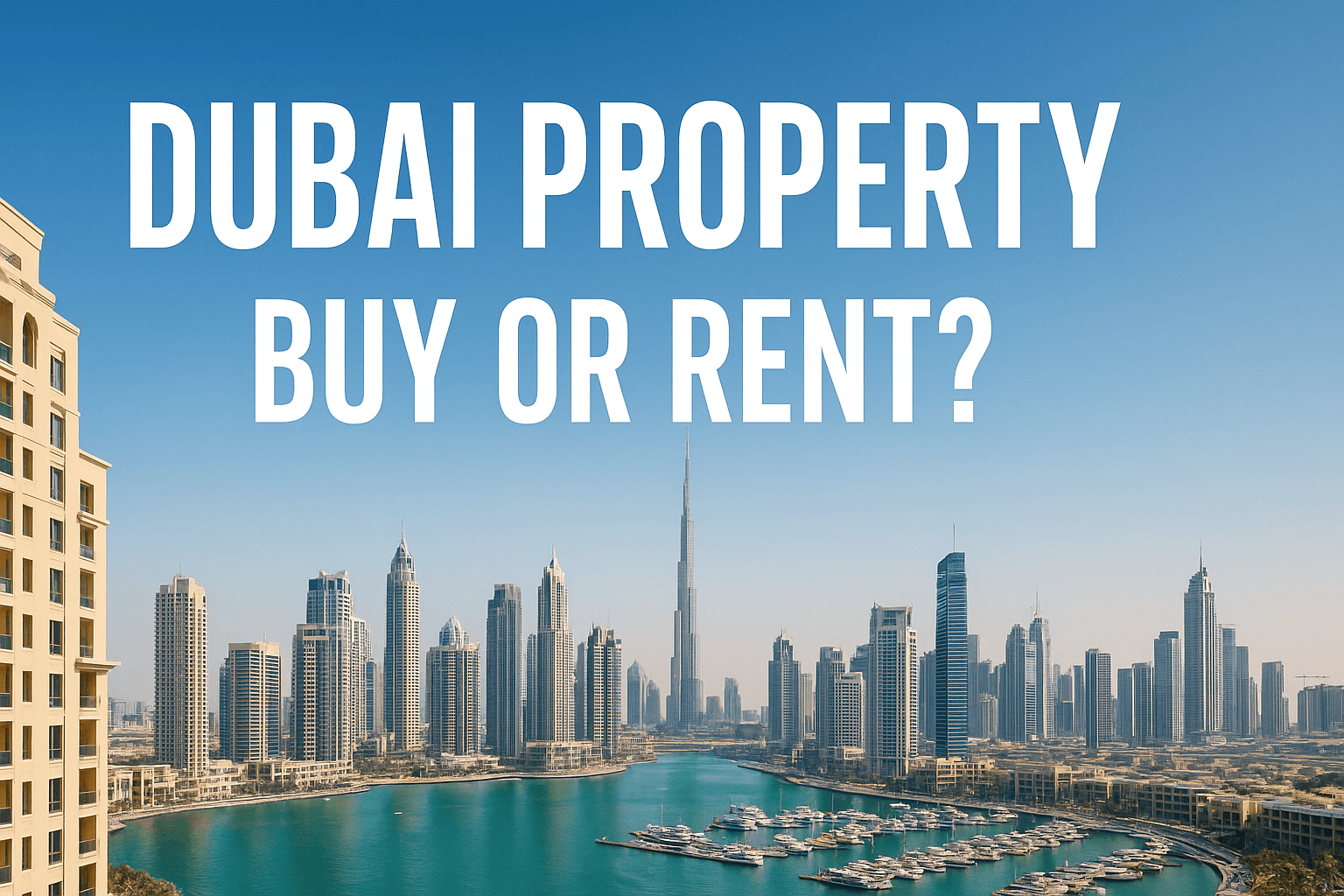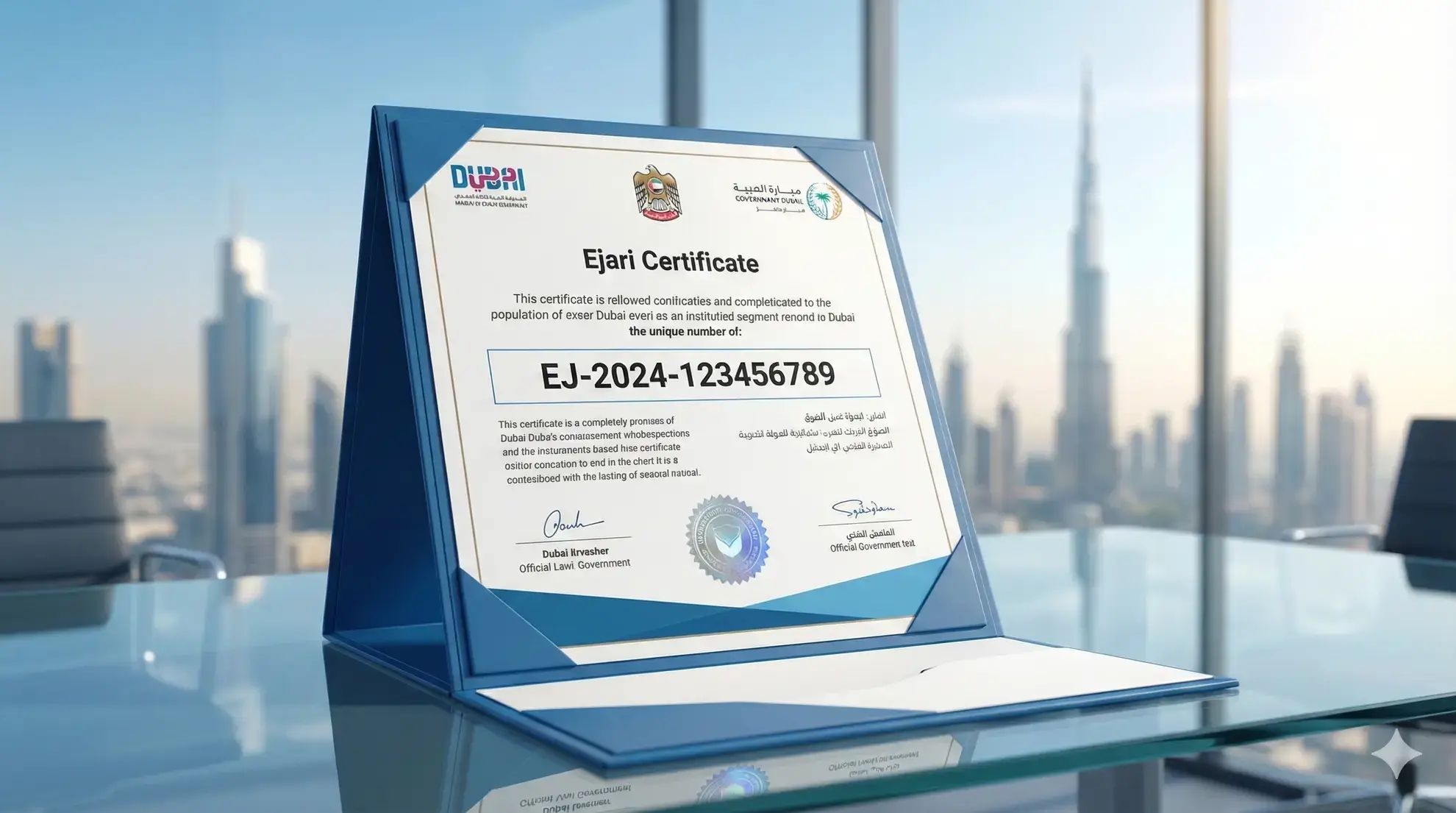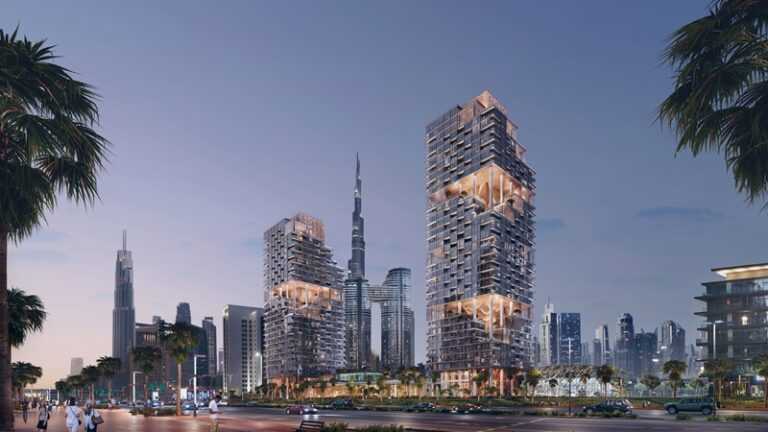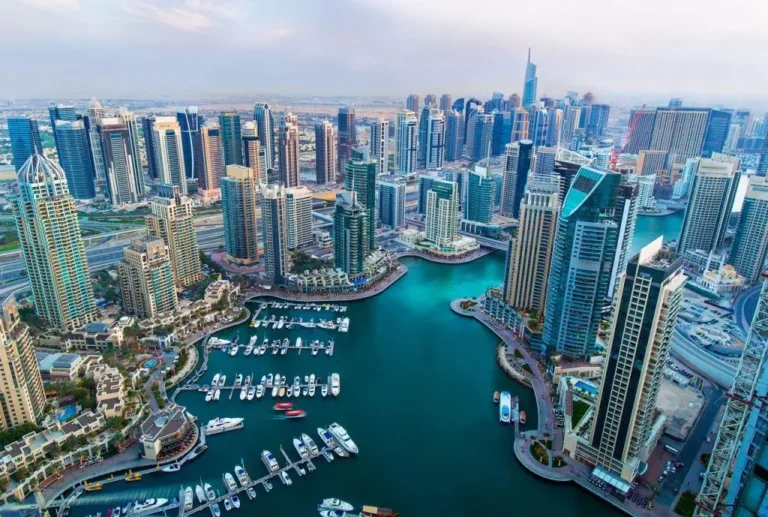Dubai Property — Buy or Rent?

Dubai's property market continues to develop rapidly, and many foreigners, investors, and residents face an important question—what's more beneficial: renting or buying an apartment? For most people, the decision is no longer straightforward. On one hand, renting offers flexibility, freedom from long-term commitments, and the ability to change neighbourhoods or property types as life circumstances evolve. On the other, buying property in Dubai opens the door to stability, wealth accumulation, and even obtaining a Golden Visa for property owners.
The choice between long-term rental and purchase depends on multiple factors: your reasons for being in the UAE, financial capabilities, future plans, and market dynamics. There's no universal answer—each situation requires individual analysis. That's precisely why more people are turning to Mayak Real Estate experts to find the optimal solution for their needs and budget.
Comparing Rental and Purchase Costs
Choosing between renting and buying an apartment in Dubai largely depends on financial priorities. At first glance, renting seems more accessible: you only pay for accommodation without needing to make a large initial deposit. However, for long-term residence, the situation changes—especially when considering a timeframe of five years or more.
It's easier to understand everything through a typical example: a one-bedroom apartment in popular areas such as Dubai Marina or Downtown. The average rental rate here is approximately AED 110,000 per year. Over five years, a tenant will pay roughly AED 550,000, excluding agent commissions (around 5% of the annual rate) and annual contract registration (approximately AED 200 yearly). It's important to consider that rental rates in Dubai increase by an average of 5–10% annually, so actual costs will be higher over time.
Now let's examine purchasing a similar property. The average purchase price for the same one-bedroom apartment in Dubai Marina or Downtown is approximately AED 1.5–1.6 million. When arranging a mortgage, the buyer needs to make a 20% deposit (around AED 320,000) and pay mandatory fees:
4% of the property value—Dubai Land Department tax
2%—estate agent commission
0.25%—mortgage registration fee
Property valuation, notarial, and administrative services
Consequently, additional upfront costs amount to approximately 6–7% of the apartment's value. With a 25-year mortgage at an interest rate of around 4.8% per annum, the monthly payment for the same one-bedroom apartment will be approximately AED 7,200. Over five years, total mortgage payments will amount to around AED 435,000, plus maintenance and utility bills—approximately AED 65–70,000 more.
Calculated over a five-year period, purchasing costs approximately AED 500–520,000, which is comparable to renting. However, the key difference is that after five years, the owner has an asset—their own apartment. The tenant receives no financial return.
According to expert estimates, property ownership in Dubai becomes more beneficial than renting on average after 4–6 years. After this period, monthly payments start working towards the owner's capital rather than disappearing forever.
Long-Term Rental: Who It Suits and Its Advantages
Long-term rental accommodation in Dubai is a popular solution amongst expats, families, and young professionals planning to stay in the UAE for a year or longer but not yet ready to invest substantial funds in property. Rental terms typically include a 12-month contract with renewal options, with payment made monthly or via multiple cheques throughout the year. This format provides stability and allows budget planning without the risk of sudden price increases.
For many, long-term rental is a way to adapt to life in Dubai. New residents get time to explore neighbourhoods, understand transport infrastructure, and assess distances to work or children's schools. This is particularly important as each city district has its own character—from the active rhythm of the central area to quiet coastal or family-oriented zones.
Advantages of long-term rental:
Flexibility and mobility: You can change accommodation if circumstances change, such as a work promotion or having children
Fewer financial obligations: No need to pay a large deposit or take out a mortgage
No maintenance hassles: Technical issues—repairs, plumbing, air conditioning—are often resolved by the landlord or management company
Opportunity to try different areas: This allows finding the optimal location for permanent residence before purchasing property
Access to modern complexes: Even when renting, residents can use swimming pools, gyms, parking, and other amenities
However, to make an informed decision, it's important to weigh the pros and cons of renting. Disadvantages include the lack of personal wealth accumulation, risk of changing rental conditions, and dependency on the landlord. Some contracts also require deposits and strict adherence to residence rules. Nevertheless, for most people seeking flexibility, comfort, and risk minimisation, long-term rental in Dubai is a rational and convenient way to establish life in one of the world's fastest-growing cities.
Buying Property: When It's a Strategic Decision
Buying property in Dubai isn't simply a housing question but a long-term strategic decision often viewed as an investment in a stable future. The city has maintained its status as one of the world's most dynamic property markets for many years, offering high rental yields, developed infrastructure, and a stable economy. That's why purchasing accommodation becomes an attractive step both for permanent residence and generating passive income.
Acquiring an apartment or house suits people planning to stay in the UAE long-term, aspiring to financial independence, or wanting to diversify their investment portfolio. Property owners gain not only comfort and stability but also prestige, as owning property in Dubai demonstrates status and long-term confidence.
Advantages of buying property:
Investment benefit: The market grows steadily, and property values in popular areas gradually increase
Passive income: Property can be rented out to generate profit in a stable currency
Long-term security: Unlike renting, owners don't depend on landlord decisions
Golden Visa: Purchasing property worth AED 2 million or more qualifies you for a 10-year resident Golden Visa, granting residence rights in the UAE for the entire family
Property control: Owners can independently choose interior design, renovations, and upgrades, which isn't possible when renting
Psychological comfort and stability: Owning your own home provides a sense of confidence and long-term stability for the family
Asset transfer capability: Property can be used as inheritance or security for future generations
Purchasing accommodation also carries some risks. Disadvantages include large initial expenses, the need to pay taxes, commissions, and maintenance costs. The market also requires careful analysis—choosing the neighbourhood, developer, and property type matters greatly. Nevertheless, considering the economy's stability and government support for investors, buying property in Dubai remains a strategically beneficial decision for those thinking ahead and aiming to transform their accommodation into an appreciating asset.
Who Benefits from Renting vs. Buying
The decision between renting and buying property in Dubai largely depends on a person's goals, financial capabilities, and life plans. There's no universal answer—both options can be beneficial when approached consciously.
Renting is optimal for those who've just moved to the UAE, haven't settled on a residential area or type of work, and for specialists working on 1–3 year contracts. Long-term rental allows flexible accommodation changes depending on circumstances, doesn't commit you to large financial investments, and frees you from property maintenance hassles. Additionally, renting is a convenient option for those planning to first study the market and make a purchase decision later.
Buying property, conversely, suits those planning to stay in Dubai long-term, wanting to gain stability, and viewing accommodation as an asset. For investors, it's a chance to create a passive income source from rentals, whilst for families it guarantees permanent residence without depending on property owners' decisions. Moreover, acquiring property worth AED 2 million or more opens the path to obtaining a Golden Visa, making purchase even more attractive long-term.
Mayak Real Estate helps clients understand all the nuances—from budget assessment to choosing neighbourhood and property type. The company's experts conduct individual analysis, considering the client's plans, lifestyle, and investment goals. This approach allows making the right decision—whether to buy or rent—and doing so with maximum benefit.
Dubai's market has demonstrated stable growth for several years—property prices are increasing, whilst demand amongst investors from Europe and the CIS remains high. Simultaneously, the rental sector continues developing, making both options relevant.
If you're ready to consider buying property in Dubai, explore current offerings from Mayak Real Estate in the company's catalogue.
How Mayak Real Estate Can Help You
Mayak Real Estate is an agency with a global background and established local practice in Dubai. The company has assembled a team of professionals with over 15 years' experience in international markets and a project portfolio adapted for different buyer types—from investors to end consumers. Mayak emphasises personalised investment strategies and in-depth project analysis, which is especially important in Dubai's dynamic market.
Advantages of working with Mayak Real Estate:
In-depth sector analysis and transparent analytics: The team prepares detailed project assessments, yield forecasts, and scenario calculations so clients see expected risks and returns
Access to exclusive and sought-after offerings: Mayak has access to projects and lots difficult to obtain through average agents
Complete transaction support: Finding options, organising viewings, conducting negotiations, preparing documents, and completing transactions—everything turnkey to fully address the client's request
Legal and administrative support: Lawyers verify properties' legal status, accompany registration, and interact with the registry
Financial and post-sale process support: Assistance with mortgages for expats, opening bank accounts, arranging investment visas, and comprehensive property management
Local team with international experience: The combination of Dubai presence and international project portfolio allows considering global investment trends and local specifics
If you need practical assistance deciding about renting or buying property, Mayak Real Estate specialists offer a systematic approach—from analysing personal goals and budget to managing assets after purchase. Thanks to access to exclusive offerings, comprehensive legal and financial support, and local Dubai experience, the company can minimise risks and accelerate results for clients.
Conclusions
The question of what's better—renting or buying property—cannot be answered definitively. Each option has its advantages and limitations, and the optimal solution depends on personal goals, financial capabilities, and life plans. For some, long-term rental becomes a flexible and convenient solution—without obligations, with the ability to change neighbourhoods and adapt to new circumstances. For others, buying property is a strategic step opening the path to stability, investment income, and long-term opportunities, including obtaining a Golden Visa.
Dubai's property market is growing confidently, so both renting and buying can be beneficial—the key is approaching the choice consciously. Consider not only the financial side but also life context: duration of stay in the UAE, professional plans, family needs.
Mayak Real Estate will help make an informed decision. The agency's experts will conduct market analysis, calculate potential costs and benefits, and recommend the best options for specific situations. When choosing between renting and buying, follow strategy rather than emotions—and then investing in Dubai's property market becomes not just accommodation but part of a financially stable future.



